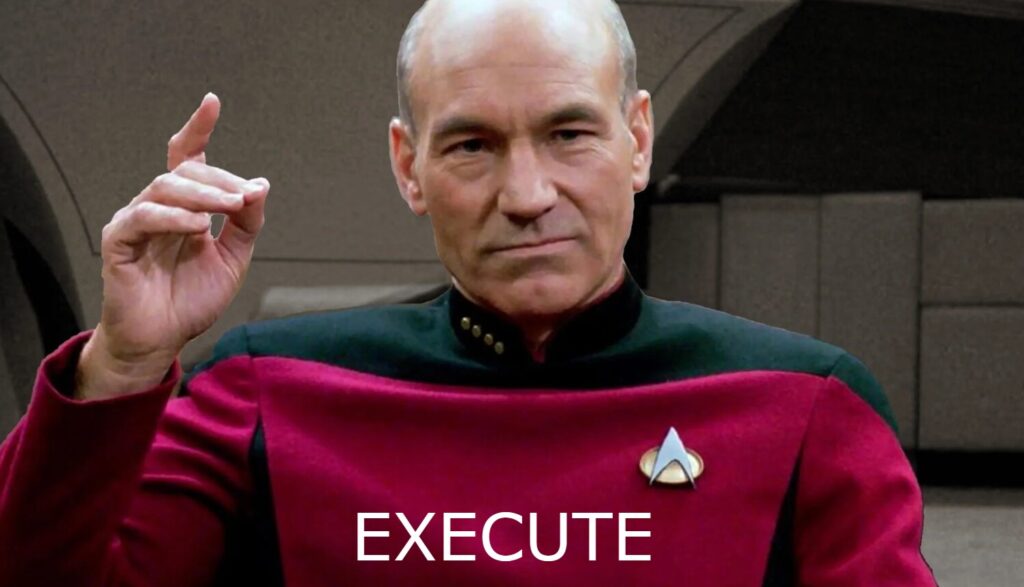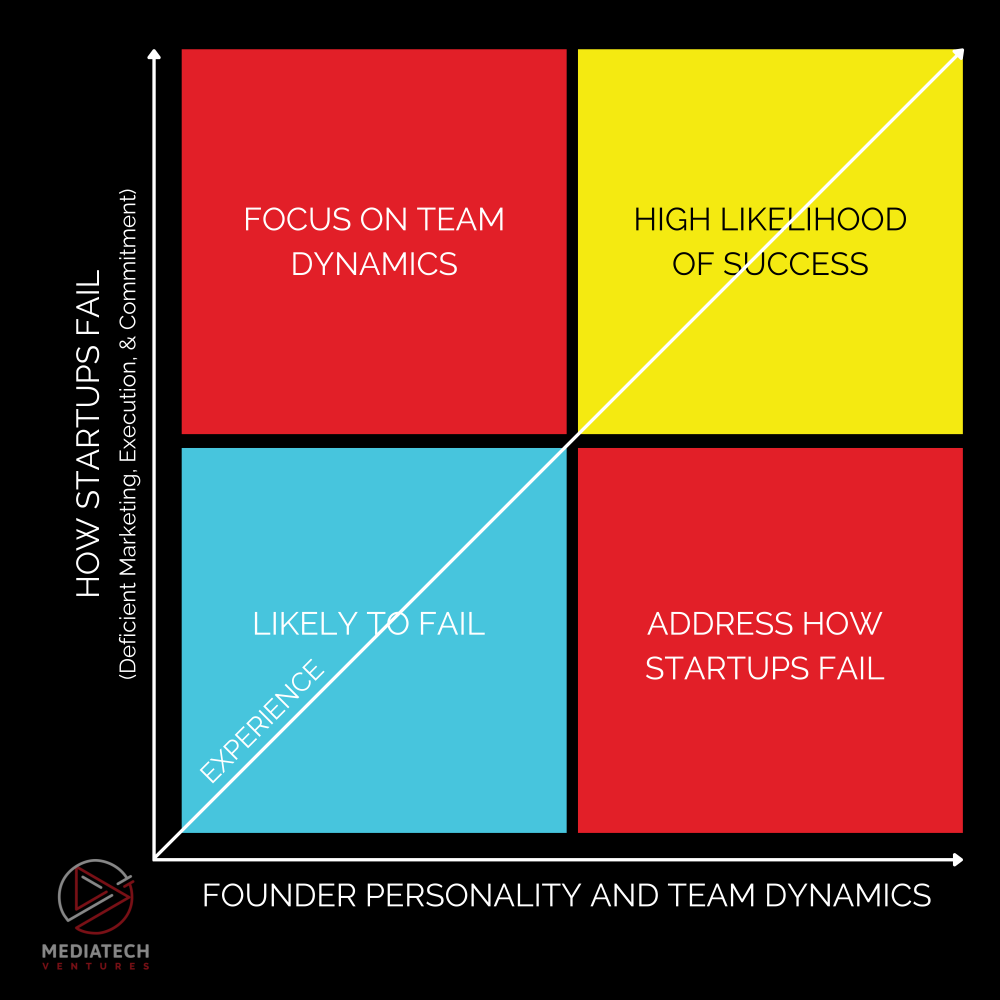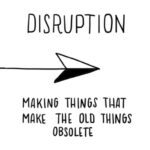
I want to put your head on a specific focus as we explore this question. In the last few weeks, I’ve tackled the question of an ideal team for a startup, sharing new research about personalities, been critical of expectations, and proposed that understanding and avoiding how startups fail is more important than attention directed at what is working for you.
Throughout these weeks, the word “execution” kept coming up and you know as well as I do, advising execution is one of the most popular turns of a phrase.
- “Ideas are easy. Implementation is hard.” – Guy Kawasaki
- “The way to have a company that executes well is you have to execute well yourself.” – Sam Altman
- “No excuses. No explanation. You don’t win on emotion. You win on execution.” – Tony Dungy
- “Execution is the game.” – Gary Vaynerchuck
- “Execution is everything.” John Doerr
Execute what?
Friends and peers know I’m not a fan of meetings and as I asked myself that question, my mind kept wandering to time spent in meetings as the best counter-point to what it means to be getting shit done. I’m prone to say, “The only reason that warrants a meeting is because something is wrong. What’s wrong? Let’s fix that so we don’t spend more time meeting.” And I find that the work that I do in MediaTech Ventures, teaching founders and developing ecosystems for cities, comes from this underlying tendency I have that if we address what’s wrong, we can focus on doing the work that matters.
In Startup Development Organizations, we can expect that the mentors, advisors, and program, are overcoming obstacles for founders and mitigating risks for investors. If (since) we know execution matters so much, we should all be ensuring that founders aren’t wasting time on the wrong things:
- Building before knowing what the market will support
- Selling more than listening
- Talking with the wrong people
- Designing with perfection in mind rather than releasing and testing
- Putting together collateral more than developing relationships
- Dictating what it should be because it’s what you want
- Trying to protect or keep secret ideas, stifling progress
- Bringing the wrong people on to the team or even what might be the right people but the wrong time
In that last regard, I recently sparked a wonderful discussion about the ideal team in a startup, noting, “Startups are exceptionally unlikely to work out, meaning the team sort of has a moral obligation to do whatever necessary to make it work (otherwise everyone loses); and that very often means you are not a fit. Startups aren’t companies wherein they can afford to train, manage, and work with you to make a job work – you all have a responsibility to make the venture sustainable and successful.”
What led me down this past was first, a study conducted by Oxford Internet Institute, University of Oxford, University of Technology Sydney, and the University of Melbourne which found that founding teams that have a need for variety and novelty, reduced modesty, an openness to adventure, and heightened energy levels are MUCH more likely to be successful. With that in mind, I blended the path to success with the known causes of failure to provide you with a matrix you can use to weigh whether or not the team you have is ideal.
That brought us back to the fundamental question here, to do what? Most founders waste a lot of time on the wrong things and as a startup, you have limited runway. Execution matters but no one ever clarifies HOW TO FOCUS
CLOSE, CODE, and CREATE – the Keys to Execution
Meetings. Sell, another too frequently heard bit of startup advice, sell!
Why do I criticize selling when it’s such popular advice and when it seems obvious that you need to talk to customers and bring in cash flow?
Founders and startup teams get lost in the weeds of doing things rather than delivering the results that matter – That’s execution.
CLOSE
One of the primary reasons I couldn’t continue working in companies (established companies) is because of increasing frustration with Agencies who love providing numbers about all the things they’ve done.
We got you 1000 visits! Your viral marketing campaign reached 100,000 people. That press release was on 24 different sites. We ran 12 new ads and set up 3 more campaigns. We got you leads.
And I felt like I was pulling my hair out as a, then, junior working professional, as the management and Board of the company seemed satiated with work being done. “Thanks agency! Here’s more money, keep up the good work.”
What the hell?
I only care about results and results aren’t found in work done, results are the conclusions sought: close business.
Get that LOI with a potential partner, get the contract signed, launch the form that signs up customers so that they pay. This is execution as a startup.
You should not care at all how the meetings are going and don’t distract the team with new possibilities. Of course, keep everyone aligned to the vision and mission of the venture but having meetings with leads is not execution! Close deals.
CODE
Startups get lost in the weeds of designs. CTOs fear putting something up because that work reflects their skill. Founders bury themselves in opinions and articles explaining what’s ideal. Product releases stall because, “we’re not ready.”
That isn’t execution.
Get it done, get it pushed, get it live.
Startups are experiments. As you endeavor to uncover new business models for innovative solutions, you cannot KNOW what is right or what works and the ONLY way to find out is to just put it up. Stop overthinking, stop seeking perfection, and stop making excuses.
The WORST investors or partners in a startup are the people who doubt working with you because there is a bug on the site or a feature isn’t working. The faster you can iterate, LEARN, and pivot, the more likely you are to find success; and anyone expecting a startup to be flawless is someone you don’t want to be working with. Get it up!
CREATE
People often ask how I can write so frequently and so much. The answer? Because my being concerned about typos, tone, length, or my confidence in my own opinions, prevents anything at all from being shared. I write knowing full well you might disagree with me; in fact, I want you to disagree with me – startups almost ALWAYS fail – Advisors who claim they’re right and tell you what to do, with certainty, are idiots (if anyone was “right,” we wouldn’t need you being a founder of something people haven’t figure out yet, would we?)
Never waste time doing an entire redesign of a website; just change it, go.
Holding off on that newsletter because you only have 10 subscribers?? How many is the right number?
Group thinking the perfect pitch deck? Make one, start pitching, and listen to feedback.
Afraid to even start? You need that patent or you’re still working a job? No one else is waiting…
Social media have you stifled because you don’t know what to tweet? Just tweet it! You can always tweet something else tomorrow!
Appreciate these keys to execution in reverse order because I need to you see that execution isn’t the work underlying the accomplishment, it’s the accomplishment, and anything you’re doing that takes you or your team away from accomplishment, makes your venture more likely to fail!
Create something… such as the code to get the solution going… so you can close business.
Execution means getting it done. If you or your team aren’t, you need to rethink your focus, right now, and anyone failing to get shit done should be an advisor (at best) rather than someone on the team.










Brilliant analysis. Thank you!
Business development + Partnership + Alliances and Sales Strategies, what we do at Amix Tech thanks for sharing, great value
Great comments here Paul O’Brien! Love your 3 Cs and would add a 4th – communicate! ? hard to execute if you can’t communicate what needs to get done and by when and with whom. Good leadership and good communication go hand in hand.
You know, in fact, I thought that too but I felt Close and Create was more to the explicit point.
Not so sure now since you added it but I find a LOT of founders communicate poorly, talk to the wrong people, talk the team or expected customers instead of others, etc.
My thoughts was
– Create that which communicates for you
– Meetings, pitches, talk… should Close.
What you’re exposing through is a bit of direction, vision, alignment, etc. all critical, you’re right! (There’s a c, critical) but what explicitly is that?
Oh! Maybe COURSE
As in, plot the course, set the course… Even in the sense of teaching/training, the course?
It boils down to the way we’re wired. That is, we don’t generally perceive doing nothing as incurring risk. There’s no perceived danger in sitting still. But moving (read: executing) – by definition – changes that. “What if we ______ and it’s wrong?” and a slew of other doubts arise.
However, the flaw is, that there *is* danger in sitting still. There is risk in not moving, in not taking chances. It helps to be aware of this evolutionary blind spot and force yourself against that intuition.
I really appreciate these words, and simply want to note that your call for execution can be applied across many others areas of life too: fatherhood, professional goals, health and wellness, etc. To me, that generalizability is what makes this post truly shine. Thanks for writing it!
Lessons learned from life – being sedentary kills you.
Boom!
Why is it when I created product companies I was executing like mad without the need to have meetings, sell, or test? When I switched to my own venture as a solopreneur I began overthinking just as you point out in this article.
Thanks for the kick in the ass. I needed it 🙂
[…] must do something, and execute their responsibility, to get it, all by […]
[…] you’re already annoyed because this contradicts your favorite hustle-porn influencer (which by the way, has even been me), stay with me. Execution is critical, yes, but to say it’s the singular most important thing? […]
[…] you’re already annoyed because this contradicts your favorite hustle-porn influencer (which by the way, has even been me), stay with me. Execution is critical, yes, but to say it’s the singular most important thing? […]